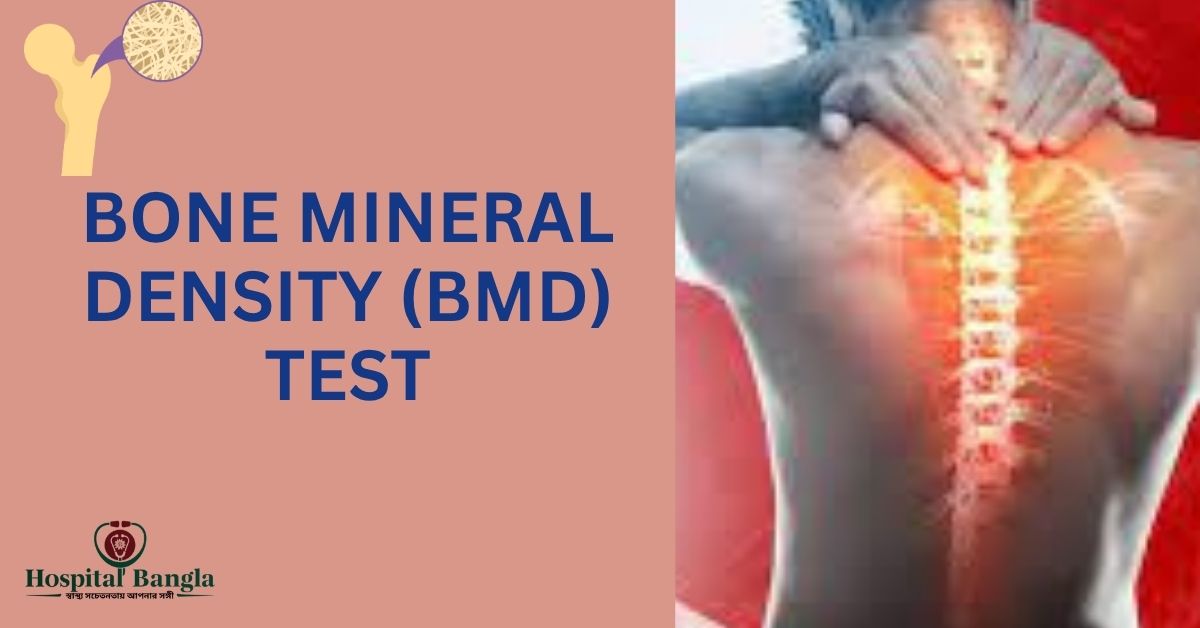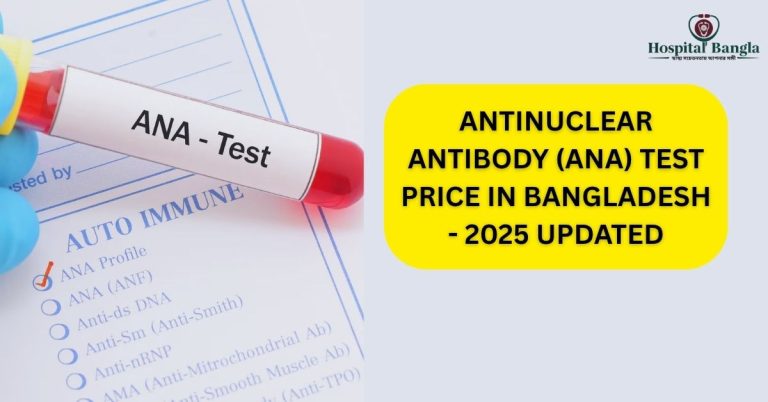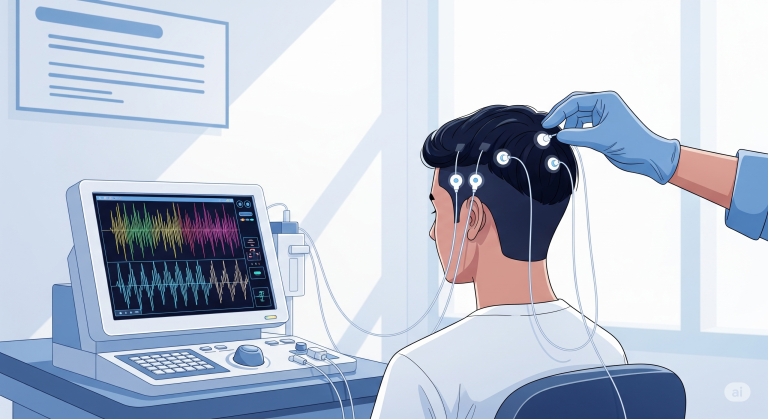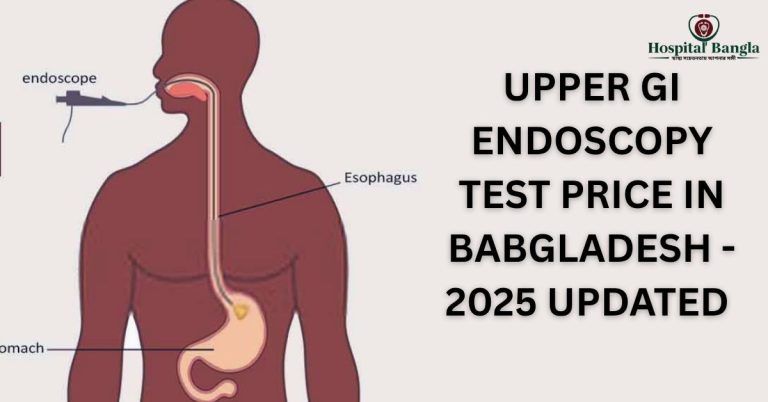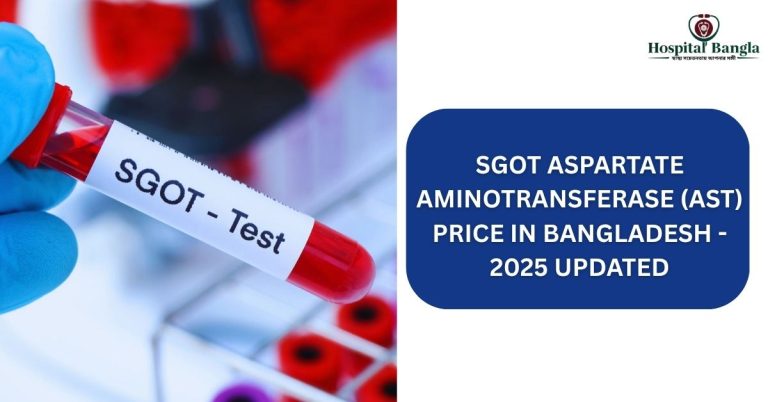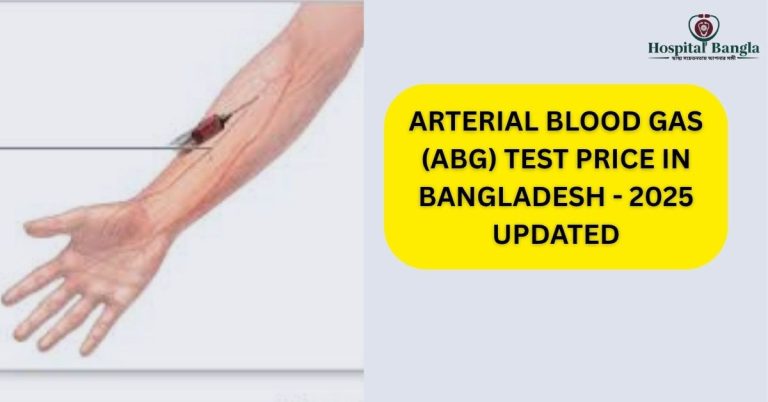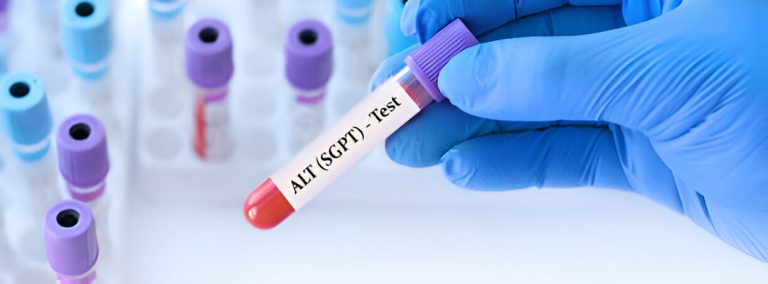BMD Test Price in Bangladesh: 2025 Updated
A Bone Mineral Density (BMD) test, also known as a bone density test, is a vital medical procedure that measures the amount of minerals, primarily calcium, in your bones. This test is essential for diagnosing osteoporosis, a condition where bones become fragile and more likely to fracture. It’s particularly important for individuals at risk of bone loss, such as postmenopausal women, older adults, or those with specific medical conditions or medications that affect bone health.
In Bangladesh, the BMD Test Price in Bangladesh varies depending on whether you visit a government or private hospital. Based on recent data, private hospitals charge between 1875 and 3300 BDT for a BMD test, while government hospitals typically offer lower prices, though exact costs may require direct inquiry. This article provides a detailed overview of BMD tests, including their purpose, preparation, pricing, and how to interpret results, helping you make informed healthcare decisions in 2025.
What is a BMD Test?
A Bone Mineral Density (BMD) test is a non-invasive procedure that uses low-dose X-rays to measure the density of minerals in your bones, typically focusing on the hip and spine. The most common method is dual-energy X-ray absorptiometry (DXA or DEXA), which is quick, painless, and highly accurate. The test provides two key scores:
- T-score: Compares your bone density to that of a healthy 30-year-old adult of the same sex.
- Z-score: Compares your bone density to others of your age, sex, and size.
The clinical significance of a BMD test lies in its ability to detect osteoporosis before a fracture occurs, assess fracture risk, and monitor the effectiveness of treatments for bone loss. Conditions that may necessitate a BMD test include:
- Osteoporosis or osteopenia (low bone mass).
- Monitoring treatment for osteoporosis.
- Assessing fracture risk in patients with conditions like rheumatoid arthritis or hyperthyroidism.
- Evaluating bone health in individuals on long-term medications like glucocorticoids.
Alternative names for the test include bone density test, DXA scan, DEXA scan, and bone densitometry.
When is a BMD Test Recommended?
A BMD test is recommended for individuals with risk factors for osteoporosis or bone fractures. These include:
- Postmenopausal women, especially those with a family history of osteoporosis, low body weight, or smoking habits.
- Men over 70, or younger men with conditions or medications that cause bone loss.
- Individuals with a history of fractures after minimal trauma.
- Patients with medical conditions like rheumatoid arthritis, diabetes, or hyperthyroidism that affect bone health.
- People taking medications such as glucocorticoids, aromatase inhibitors, or androgen deprivation therapy, which can weaken bones.
Doctors use BMD test results to:
- Diagnose osteoporosis or low bone mass (osteopenia).
- Assess fracture risk, particularly for the hip and spine.
- Monitor treatment effectiveness for those on osteoporosis medications.
The test serves multiple purposes: screening high-risk individuals, diagnosing bone-related conditions, and monitoring ongoing treatment to ensure bone health improves over time.
BMD Test Preparation
Preparing for a BMD test is straightforward, requiring minimal effort. Here’s what you need to know:
- Clothing: Wear loose, comfortable clothing without metal zippers, buttons, or belts, as these can interfere with X-ray images. Remove jewelry from the area being scanned.
- Fasting: No fasting is required, and you can eat normally before the test.
- Medications: Most medications don’t affect the test, but inform your doctor about any you’re taking, especially if they involve contrast materials from recent imaging tests (e.g., CT scans with barium), as these may impact results.
- Procedure: The test takes about 10-15 minutes. You’ll lie on a padded table while a mechanical arm passes over your body, emitting low-dose X-rays to measure bone density.
The process is painless and involves minimal radiation, making it safe for most patients.
BMD Test Price List in Government Hospitals in Bangladesh
Government hospitals in Bangladesh typically offer BMD tests at subsidized rates, making them more affordable than private facilities. However, exact prices are not always publicly listed and may vary by hospital. Below is a table of major government hospitals where BMD tests are likely available. For precise pricing, contact the hospitals directly.
| Hospital Name | Location | BMD Test Price (BDT) | Contact Number |
|---|---|---|---|
| Bangabandhu Sheikh Mujib Medical University (BSMMU) | Shahbag, Dhaka | Inquire at hospital | +880255165760 |
| Dhaka Medical College Hospital (DMCH) | Dhaka | Inquire at hospital | +880241863000 |
| Chittagong Medical College Hospital (CMCH) | Chittagong | Inquire at hospital | +880312522000 |
| Mymensingh Medical College Hospital (MMCH) | Mymensingh | Inquire at hospital | +8809167200 |
| Rajshahi Medical College Hospital (RMCH) | Rajshahi | Inquire at hospital | +880721750000 |
| Sylhet MAG Osmani Medical College Hospital | Sylhet | Inquire at hospital | +880821720000 |
| Khulna Medical College Hospital (KMCH) | Khulna | Inquire at hospital | +88041773000 |
Note: Prices in government hospitals are generally lower than in private facilities, but exact costs for 2025 should be verified by contacting the hospital directly or visiting BSMMU’s official website for the latest information.
BMD Test Price List in Private Hospitals in Bangladesh
Private hospitals and diagnostic centers in Bangladesh provide BMD tests with consistent pricing and advanced equipment. Below is a table of private facilities offering BMD tests, based on available data from 2025.
| Hospital/Diagnostic Center | Location | BMD Test Price (BDT) | Contact Number |
|---|---|---|---|
| Ibn Sina Diagnostic Center | Dhanmondi, Dhaka | 1875 (discounted) | +88029126625-6 |
| Popular Diagnostic Centre | Dhanmondi, Dhaka | 2500 | 09666787801 |
| Epic Health Care | Panchlaish, Chittagong | 3300 | +8801984499600 |
Note: Prices are based on recent data and may vary. For the most accurate pricing, contact the facilities directly or visit their websites, such as Ibn Sina Trust or Popular Diagnostic Centre.
Understanding BMD Test Results
BMD test results are reported as T-scores and Z-scores, which help assess bone health:
- T-score:
- Normal: -1.0 or above, indicating healthy bone density.
- Low bone mass (osteopenia): Between -1.0 and -2.5, suggesting a risk of developing osteoporosis.
- Osteoporosis: -2.5 or lower, indicating significant bone loss and higher fracture risk.
- Z-score: Used for younger individuals or when T-scores aren’t appropriate, comparing bone density to others of the same age, sex, and size.
Abnormal results may indicate an increased risk of fractures or underlying conditions like osteoporosis. Factors that can affect results include:
- Age, sex, weight, height, and ethnicity.
- Medications like steroids or recent imaging tests with contrast materials.
- Lifestyle factors such as diet, exercise, smoking, or alcohol consumption.
If your results show low bone density or you experience symptoms like bone pain or fractures, consult a doctor promptly for further evaluation and treatment options.
Frequently Asked Questions
How accurate is the BMD test?
The BMD test, particularly the DXA scan, is highly accurate and considered the gold standard for diagnosing osteoporosis and assessing bone density.
How long does it take to get BMD test results?
Results are typically available within 24-48 hours, depending on the hospital’s processing time. Some facilities may provide same-day results.
Is the BMD test covered by insurance in Bangladesh?
Coverage depends on your insurance provider. Some plans may cover the test if prescribed by a doctor, but it’s best to check with your insurer.
How often should one get a BMD test?
Women over 65 and men over 70 may need testing every 2 years, or earlier if risk factors like fractures or medication use are present. Your doctor will advise based on your health profile.
What is the difference between a BMD test and an X-ray?
A standard X-ray can detect fractures but doesn’t measure bone density. A BMD test specifically quantifies mineral content to assess bone strength.
Are there any risks associated with the BMD test?
The test uses minimal radiation, posing a very low risk, making it safe for most individuals.
Can lifestyle changes improve BMD test results?
Yes, a diet rich in calcium and vitamin D, weight-bearing exercises, and avoiding smoking or excessive alcohol can improve bone density over time.
Conclusion
The Bone Mineral Density (BMD) test is a critical tool for assessing bone health and preventing conditions like osteoporosis, which can lead to debilitating fractures. By understanding the test’s purpose, preparation, and results, you can take proactive steps to maintain strong bones. Comparing BMD Test Prices in Bangladesh across hospitals can help you find cost-effective options, but prioritize quality and accuracy when choosing a facility. Always consult a healthcare provider to determine if a BMD test is right for you and to interpret results for personalized treatment plans. For the latest pricing and availability, visit or contact your preferred hospital directly.

